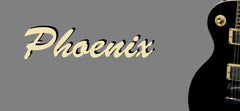- Featured
- Best selling
- Alphabetically, A-Z
- Alphabetically, Z-A
- Price, low to high
- Price, high to low
- Date, old to new
- Date, new to old
No products found
piccolos
(0 products)The piccolo is the smallest wind instrument in the orchestra, but its clear, penetrating tone makes it anything but inconspicuous. With a range far exceeding that of the regular flute, the piccolo adds a unique timbre to both classical and modern music. Looking for a compact instrument with a distinctive character? Then the piccolo is a surprising and powerful choice.
What is a piccolo?
The piccolo is a small flute, usually tuned in C, that sounds an octave higher than the standard transverse flute. It's played similarly, but its compact size requires greater embouchure control and precision. The piccolo's tone is clear, sharp, and brilliant—perfect for enhancing melody lines or adding sparkling accents in an orchestra.
Why choose a piccolo?
1. Unique, high timbre
The piccolo produces a radiant, striking sound that can soar above an orchestra or ensemble. This often lends the instrument soloistic or expressive accents in musical pieces.
2. Supplement to transverse flute playing
For flutists, the piccolo is a logical extension of their instrumentation. It offers new technical and musical challenges and makes you applicable in more orchestral works.
3. Compact and lightweight
Its small size makes the piccolo easy to carry and ideal for musicians who are often on the road or want to travel light.
What should you pay attention to when purchasing?
When buying a piccolo, the material and tuning are crucial. Models are available in plastic (for beginners and outdoor performances), wood (for a warmer, more classic sound), and combinations of silver and wood. Choose a model that suits your playing style and experience level.
Well-known and reliable brands include Yamaha , Pearl , Gemeinhardt , Burkart , and Roy Seaman . For beginners, plastic models are often sufficient, while advanced players opt for wooden or silver models with precise intonation and a professional finish.










